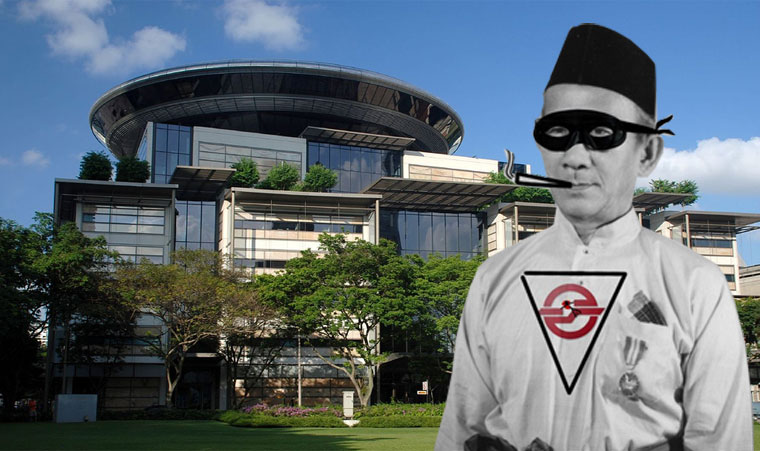Jover Chews of the future, rejoice: You might just get away with your antics in 2015 as the law against harassment has been tweaked.
The Protection from Harassment Act, passed in Parliament in 2014, will give authorities more teeth to tackle such cases.
For example, take the case of ex-Sim Lim shop owner Jover Chew.
Even though his errant behaviour and dubious sales tactics at his mobile phone shop came to light after a video of a tourist begging for a refund surfaced on the internet, the actions of online users who exposed personal information and photos of him could in the future constitute a breach of the Protection from Harassment Act.
This is because the Act applies regardless of intention, as long as the action causes distress and alarm to the victim.
Jonathan Yuen, a partner at Rajah and Tann, was quoted in Channel News Asia, on Dec. 30, 2014, insinuating that the antics of SMRT Ltd (Feedback) -- Singapore's only online vigilante -- would have been illegal if the new anti-harassment law had been passed:
"The very common practice nowadays for online self-styled and self-appointed vigilantes is to do what they call 'online CSI'. They end up posting personal details of people online, very private pictures.
"While they may argue that these were online in the first place, the way in which they have posted it - asking other members of the online community to call the number, to make prank calls, to order pizza for fun, or to turn up at their house to hurl abuse, or to identify the person's family, children, or parents, or car licence plates - now constitute harassment."
Previously, taking someone to task for harassment is a difficult process, especially if no criminal force or violence was involved.
But the new Bill has defined both online and offline harassment, introduced new offences such as stalking and beefed up existing penalties for such behaviour.
One feature of the Protection from Harassment Act is its aim to improve access to justice, where it will be easier for people to bring their complaints to the courts, without necessarily having to engage a lawyer.
However, there are still loopholes.
Yuen, the lawyer at Rajah and Tann said at the moment "there is no legislation anywhere to compel the ISP to disclose the identity of the person".
More needs to be done to compel internet service providers (ISPs), social media sites and web mail providers to furnish details of perpetrators.
Without compelling ISPs to move, this may still lead to a potentially frustrating scenario for the victim in effecting numerous takedown orders or numerous clarification orders.
Moreover, any one person can always use multiple accounts to harass others, which allows accounts to be shut down and set up under a different name.
Most importantly, it still remains to be seen if the policing and enforcement measures can be carried out effectively given the variety of ways to have one's identity concealed online or to employ numerous pseudonyms to mask one's activity.
Related articles:
Mega troll SMRT Ltd (Feedback) pranked Sim Lim shop owner, appears on Wanbao newspaper
Ex-admin of SMRT Ltd (Feedback) revealed to be on board missing AirAsia QZ8501
Online vigilante SMRT Ltd (Feedback) is planning an exposé on blogger Xiaxue
Online vigilante SMRT Ltd (Feedback) setting their sights on Data Register Pte Ltd
Vigilante group SMRT Ltd (Feedback) responds to media queries about why they do what they do
Mega troll SMRT Ltd (Feedback) raising money for themselves on Indiegogo
Top photo via
If you like what you read, follow us on Facebook and Twitter to get the latest updates.
If you like what you read, follow us on Facebook, Instagram, Twitter and Telegram to get the latest updates.
